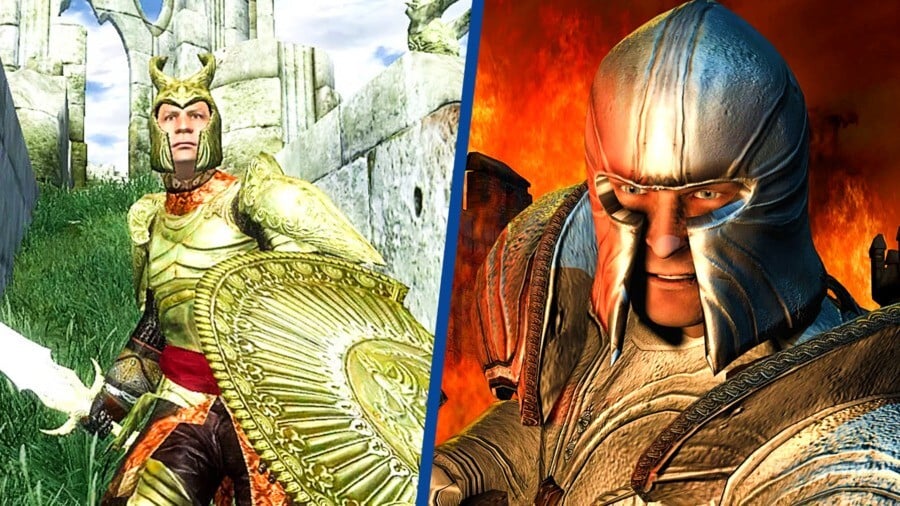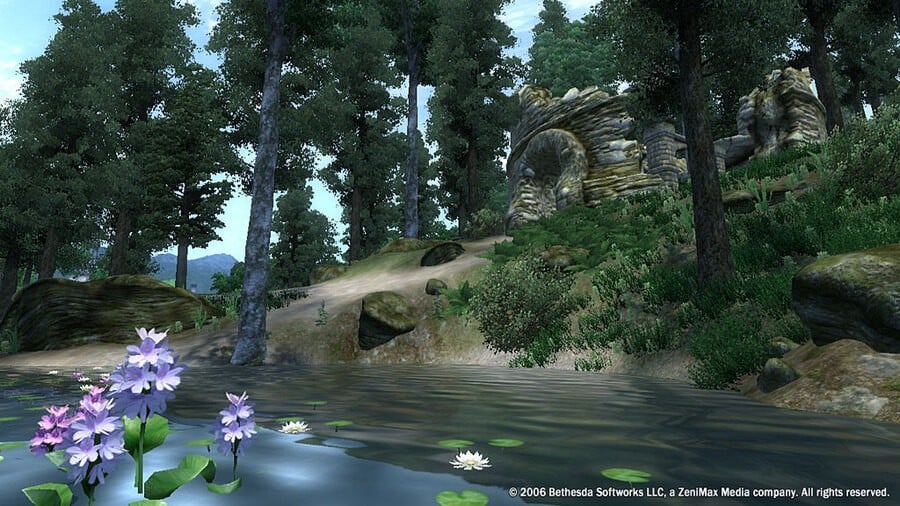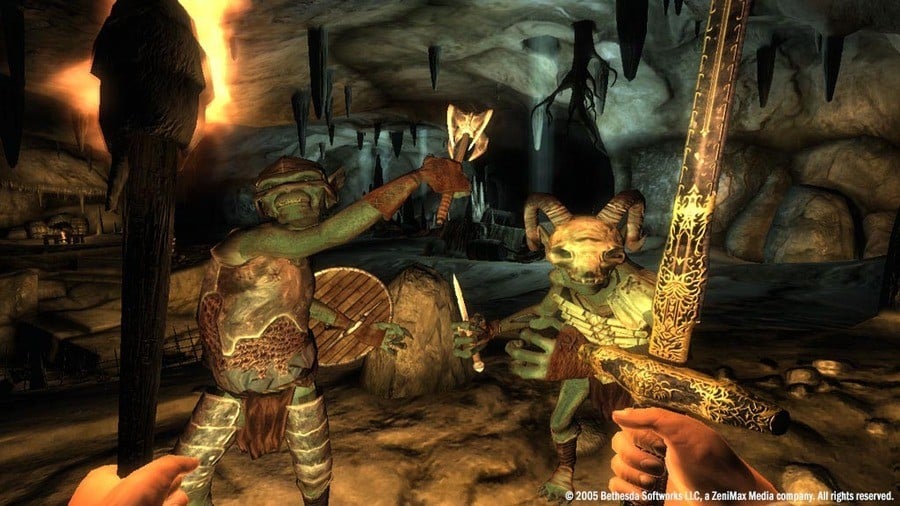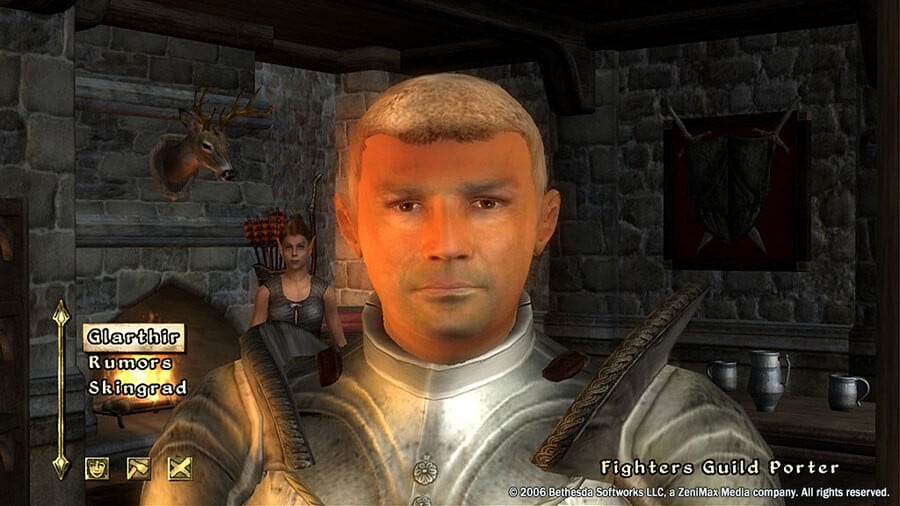
Hey there fellow gamers! As much as we’d love to keep discussing the endless chatter surrounding the rumored Oblivion remake, I’ve been pondering: what exactly are we yearning for in this potential revamp? After all, we’ve heard plenty of whispers and speculation, but it’s time to take a moment and voice our hopes. So let’s dive into the world of Cyrodiil once more and dream about the Oblivion remake that truly resonates with us!
Back in 2006, I first dived into the sprawling world of The Elder Scrolls IV: Oblivion on my Xbox 360 or PC. Later, it found its way to the PS3 in 2007. This game was a groundbreaking experience for me, setting a whole new bar for immersive open-world fantasy escapades.
Looking back, I must admit that Bethesda’s trailblazer hasn’t aged particularly gracefully. Nearly two decades have passed, and it’s become quite the rough, unrefined journey that requires a strong dose of nostalgia to truly appreciate its charm.
Perhaps what draws people to this rumored remake is its allure, as some aspects of Oblivion remain captivating. There are still instances of greatness in it that are worth exploring, but the overall presentation can be challenging to convince others to buy into.
And so our first port of call is…
The Obvious Graphical Overhaul

A key aspect for any remake is improved visuals, and Oblivion could definitely benefit from a refresh. In the 2006 version, the graphics stood out; the open world of Cyrodiil was captivating with its verdant valleys and towering mountains, made even more enchanting by a detailed day-night cycle and dynamic weather system.
Admittedly, the rubber-like quality of the character models might have raised some doubts in those days, but there was a certain enchantment about Oblivion’s depiction of high fantasy, particularly in its representation of cities and the picturesque landscapes that enveloped them.
As a devoted fan, I can’t help but get excited by the whispers suggesting that this remake has been painstakingly crafted from scratch with Unreal Engine 5. This leads me to believe we’re in for an extraordinary visual upgrade. The assumption is that it will preserve the original’s geographical layout throughout the map, but with a twist – the new terrains will be meticulously sculpted using cutting-edge, current-gen resources.
Moreover, advancements in lighting engines and weather systems over the past twenty years mean that the remake will not need to heavily rely on a large amount of bloom to achieve depth in its visuals. In simpler terms, these improvements have made it easier for the creators to make the game look visually appealing without relying too much on one special effect (bloom).
Ultimately, it’s challenging to gauge the quality of the remake; the outcome largely hinges on the changes made in terms of artistic style compared to the original. A complete rebuild doesn’t automatically imply a fresh creative perspective has been applied.
The Gameplay Conundrum

It’s clear that the role-playing game (RPG), Oblivion, has a problem with its progression, being both imbalanced and oddly structured. Consequently, it seems necessary for the remake to undergo substantial changes in its fundamental mechanisms.
Scattered across the internet are suggestions for a system like Skyrim’s leveling mechanism, and truthfully, it’s not a terrible proposal. Although Skyrim’s character advancement isn’t flawless, Bethesda has certainly hit a jackpot with a progression system that is easy to grasp from the outset; new players can pick up Skyrim and quickly comprehend how everything works together.
As a gamer, I’m saying this straight up: The Oblivion remake shouldn’t just rely on a graphical upgrade to shine. Sure, the original game had some quirks that were amusingly broken, like the acrobatics skill, but those need to stay in the past if this remake is going to stand on its own ground and not trip over its own roots.
In the realm of Oblivion and perhaps even more so, this strategy applies to fighting – it often involves repeatedly attacking (with speed increasing based on your skill) and occasionally using a health potion. Compared to Skyrim, some may argue it’s not significantly improved, but in Skyrim, there’s at least a sense of truly wielding a weapon.
When it comes to remakes, significant gameplay adjustments can potentially lead to disappointing results, so we believe careful consideration is crucial when considering any major changes. However, it’s challenging to envision the action of Oblivion being well-received in 2025 as it originally was.
The Frankly Iconic Voice Acting

Over the past few years, the popularity of Oblivion has seen a revival, largely fueled by the influence of internet memes. Many of its most humorous and peculiar scenes can be attributed to the game’s voice acting, which has become an integral part of its iconic status.
Back in the day, you’d find that most of Oblivion’s NPCs were voiced by just a handful of talented individuals, with Patrick Stewart and Sean Bean taking on some pivotal roles in the storyline. Nowadays, voice acting has come a long way, but even with its rough edges, this game had characters that were hard to resist, like the utterly charming and cheesy Dark Brotherhood assassin, Lucien Lachance.
The question arises: Should we keep the original dialogue as is? Recording all the dialogues again could be quite extensive, and one might wonder if Oblivion would still hold its unique charm without the actors who significantly shaped the game’s distinctive ambiance? Remarkably, we find ourselves divided on this issue.
Once again, this decision’s going to hinge on the overarching scope of the remake.
After expressing our own thoughts, we’d love for you to express yours regarding the speculated remake of Oblivion. Feel free to share your opinions (including any worries or doubts) in our polls and elaborate further in the comments section below.
Read More
- Gold Rate Forecast
- PI PREDICTION. PI cryptocurrency
- Rick and Morty Season 8: Release Date SHOCK!
- Discover the New Psion Subclasses in D&D’s Latest Unearthed Arcana!
- Linkin Park Albums in Order: Full Tracklists and Secrets Revealed
- Masters Toronto 2025: Everything You Need to Know
- We Loved Both of These Classic Sci-Fi Films (But They’re Pretty Much the Same Movie)
- Mission: Impossible 8 Reveals Shocking Truth But Leaves Fans with Unanswered Questions!
- SteelSeries reveals new Arctis Nova 3 Wireless headset series for Xbox, PlayStation, Nintendo Switch, and PC
- Eddie Murphy Reveals the Role That Defines His Hollywood Career
2025-04-09 21:07